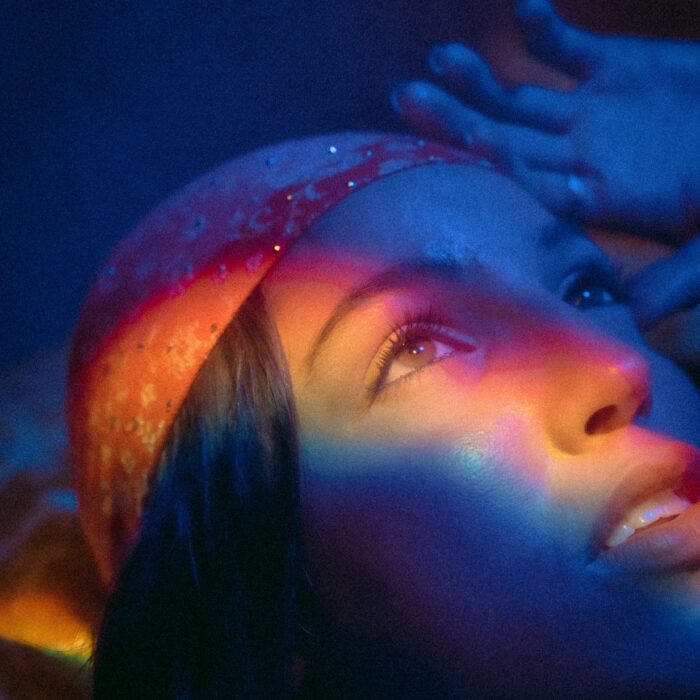You have no items in your cart. Want to get some nice things?
Go shopping
She wasn’t supposed to be Catholic. It was a truth that she knew, that every student at Paxton Academy knew. She was supposed to be atheist like the Hipsters her classmates were, pray to the god of Science, flax seed, and mason jars. That was the way of the youth now; God was the myth of old people and Republicans. But vintage was never vintage enough for her; she believed in something ancient, older than the stone beneath her feet. In the dark of night she could hear the distant murmurings of a world beyond, a world that was neither here nor there. When she lit the candles for Sunday dinner she opened her eyes to the flames and saw a light brighter than the sun, brighter than the brightest star in all the universe.
She kept it private, a shameful secret. If her friends knew she would have no friends. So she pretended, living a double life. In school, she laughed with her peers at the absurdity of water turning to wine; at Mass, she knelt on the ground instead of the padded knee rests, felt the floor grinding her skin to the bone. During the week, the resulting bruises reminded her of her disgrace, of her denial.
Her classmates never suspected. They knew she was sweeter, purer than the rest of them. They teased her for being a prude, a virgin. But there were other prudes, other virgins. So they never knew, and that was the way it had to be.
In class one day, the History teacher tried to talk about God. The teacher claimed to be a Buddhist, though he had been a Catholic once, a long time ago. Only she knew of this, because she had seen him at Mass, years before, younger then, with a smooth face. He sat at the far back of the church; even then he had one foot out the door. He knew she knew. It was in her eyes when she looked at him, that knowing, that recognition of a past someone that lurked, even now, like a shadow at the tail of the person he was in the present.
She could have told her classmates, but she didn’t think he would appreciate it. And then there was also that fact that he had a secret of hers, too, because he knew. He knew, somehow, that she cared. That when she complained about her parents dragging her to Sunday Mass, she didn’t mean it. That when she laughed at the gratuitous waste of the papacy, the incompetence of the church hierarchy, she was perhaps denouncing her church, but she wasn’t denouncing her God, never denouncing her God. He saw this, and grasped at it, held to it fast, and used it to subdue her, to silence her.
He would test her by saying things:
“The Catholic church is a cult.”
“Well, we all know Communion is mildly cannibalistic.”
“Church doctrine is a long list of rules on how to live an unfulfilling life.”
Then he would look at her, and that look was a dare to say something, anything. She looked back, and said nothing.
So, one day he decided to talk about God. To denounce him. He could do this because Paxton Academy was a private school, and private schools do not have to abide by the same rules that public schools do.
They were studying the Spanish Inquisition, and he said, “And all this effort for a God who didn’t exist. How stupid they would have felt if they’d known.”
He looked at her, his eyes a steady-burning fire, shadows slipping and shifting through the heat. The students laughed, and she felt nothing. She went home and took a long shower, letting the hot water run over her hands until her veins showed through her wrists, a cold blue against white skin. She traced their paths and wondered what made her heart beat, whether it was red-hot blood or brittle bones or soft brain matter that harbored her soul. Material things, carrying something eternal, something that could not be burned by fire. Could God burn her soul? She wished she knew.
She thought of her History teacher. Church doctrine is a long list of rules on how to live an unfulfilling life.
For the first time, she wished there were no rules. She wished there was no God.
The following night, she was slightly drunk at a party. She wasn’t supposed to be drunk at a party, slightly or otherwise. She was disobeying her mother and father, and that was a sin, but nevertheless there she was. Her frayed jean shorts skimmed the tops of her thighs and her neckline dipped to show her breasts, and as the night wore on she could feel Jonah Patterson’s eyes on her chest from all the way across the room. She sat down on a chair and took out her phone, but his eyes did not move. She shifted and her shirt slipped lower. She didn’t pull it up. He kept staring. Eventually, he caught her gaze. She looked away.
He crossed the room and knelt in front of her, his face upturned to meet her eyes. He was not supposed to be meeting her eyes like this, and that was a truth they both knew. Jonah belonged to Jessica, to Phoebe, to the sweet and smart and lithe girls who were supple and willing and could care less about pesky social constructions such as commitment. She had no right to him; she was the virgin, the prude, the pure one.
“Caroline,” he said.
“Jonah,” she said.
His eyes fell again to her breasts, and to the small gold cross that rested between them, just visible above her swooping neckline.
He cocked his head. “Is that ironic, or an heirloom?”
She could have lied. She usually did about these things. But tonight, she was not interested in lying. She raised her chin and stared down at him, expressionless except for her eyes, which glittered coldly in the white glow cast by her phone in the darkened room. “Neither,” she said.
“Okay.” He touched the back of her wrist, and she felt the way it feels stepping out into the sweet cold wind that comes after a fall rain – all fresh and new and in trembling wonder of the world.
“Is that a problem?”
“No,” he said. He stared at her collarbones in marvel.
“Good.”
“Want to go down to the beach?” He placed a hand on her knee and looked at her, his eyes the way the shallows looked in his ocean photography – worsted silver and turquoise, caught still in rushing eddies, and the minnows, bright flashes against cold stone.
She trembled. This was what she had wanted, and yet as the situation faced her, the conviction she had held earlier this evening wavered.
She had watched Jonah in class, fascinated by the small freckle at the edge of his lip. She had wondered how his mouth would feel on hers. Why was it so bad, she asked herself, to want someone the way she wanted him? They were animals, weren’t they? Her science teacher had said so. Hadn’t God realized what he was doing when he set them all loose upon this Earth?
She took a deep breath. “Okay.”
She had known him since kindergarten. All Paxton Academy kids had known each other since kindergarten. It was a small school.
She would have preferred someone different for this time, for this cold experiment, someone she didn’t know. Someone dark and tall with a sinful smile, someone to drive the God out of her. But Jonah, with his white hair and freckled nose and familiar smile, would have to do. There was no one else.
Afterwards, she lay entrapped in his golden arms, watching the sky and feeling the fire of sand-burns on her back. She raised an arm and methodically traced the blue veins with her eyes. They were the same as before. Everything was the same as before. The gold cross seared coldly into her breastbone. She closed her eyes. The waves rushed in, and the waves rushed out.
In that moment her soul belonged to God, but her body belonged to the Earth, to the silken heat of the September night, to the spinning of the stars, to the sighing of the wind.
“I don’t regret it,” she whispered. “I don’t regret it at all. Are you putting me in Hell now?”
There was no answer.
In church the next morning, the Father was a caricature of himself. Everything he said was all wrong; his gestures were grotesquely comical. She looked into the candle flames on the altar and saw only fire, a fire that burned against her eyelids when they closed.
“Caroline?” Her mother tapped her shoulder. “You look sick. Do you need some water?”
She nodded dazedly and got up. Once she had reached the atrium, she felt nauseous. She ran to the bathroom and dashed into an open stall. She knelt over the toilet and held her face in her hands and breathed through her fingers.
She cried. It lasted for maybe a minute, maybe five. When she was done, she went to the sink and washed her raw face. Then she looked in the mirror. Her eyes were red. She looked away from herself. Her eyes fell on the paper towel dispenser. It was broken, as it had been for the past year. She wondered when someone would come to fix it.
She closed her eyes. The lights hummed faintly overhead. All was calm.
She left the bathroom.
As she walked back down the aisle, she looked up to the ceiling, to the heavy dark beams holding back the sky. She wondered if the trees that birthed the beams cried when they were killed, if God or a sparrow or the wind had heard their screams.



